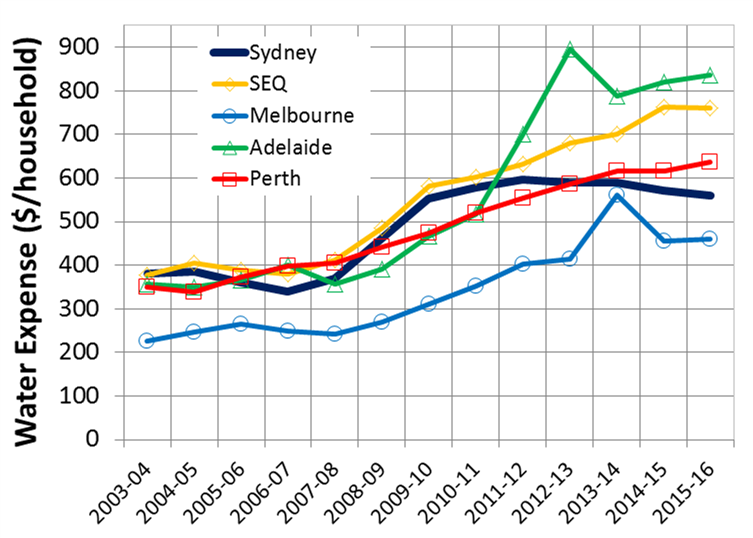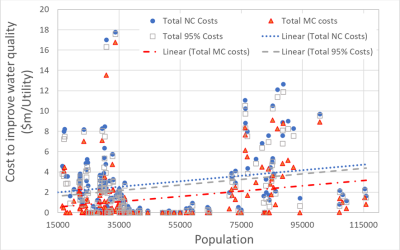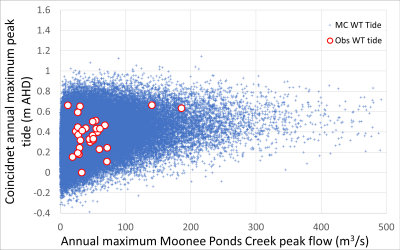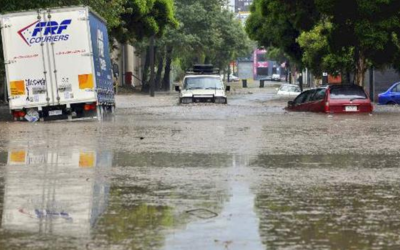Systems analysis and big data reveals benefits of new economy solutions at multiple scales
Following our presentation at WSUD 2018 & Hydropolis 2018, please find attached our peer reviewed paper and presentation.
Historical demographic, water resources and economic “big” data was examined and included in “bottom up” systems analysis to understand the benefits of distributed solutions for household water efficiency and rainwater harvesting in Australian capital city regions. We use a long history of data from government departments, agencies, utilities and private industry to discover the whole of system and society value of distributed solutions.
This investigation aims to contribute to knowledge about this key question for water sensitive urban design – local actions provide whole of society benefits but what are the benefits and how do these benefits manifest across scales?
Cities and surrounding environments are part of a system. Urban services and outcomes should be understood and analysed as part of this system. Australian cities operate at multiple linked temporal and spatial scales, from household to region, and respond to evolving challenges and opportunities. Population growth is expanding areas, increasing densities of cities, and with greater climate variability is driving higher costs of services. Services required by cities (such as water and energy) are mostly provided at a single centralised scale using average assumptions. This philosophy fosters provision of urban water services as essentially a transport industry that transfers water, wastewater and stormwater across increasingly long distances.
The millennium drought revealed that decentralised approaches to increase local supply and water efficiency improved the performance of entire systems. Simple strategies including household water efficiency and rainwater harvesting improved the water security of Australian cities. Solutions at multiple scales are better matched to respond to variable challenges throughout cities. Nevertheless, centralised solutions are preferred and benefits of local strategies including water sensitive urban design (WSUD) are contested by the water industry.
The big data history revealed the value of distributed solutions. A policy requirement that new and renovated dwellings to meet water savings targets in Sydney has acted as an economic market mechanism to drive higher growth in household water savings of 48,440 ML since 2007, lower water tariffs, improved household welfare and more economically efficient utility water services. The estimated annual average economic savings to households and the water utility in Sydney was $218 m – $578 m and $58m -$881 m. These methods and insights have broader application for discovering the new economy benefits of water sensitive urban design approaches. This research presents the potential for distributed solutions, such as WSUD, to deliver a new economy of solutions that improve the performance of utilities and mitigate impacts on households.
The peer reviewed paper and presentation is provided here:






